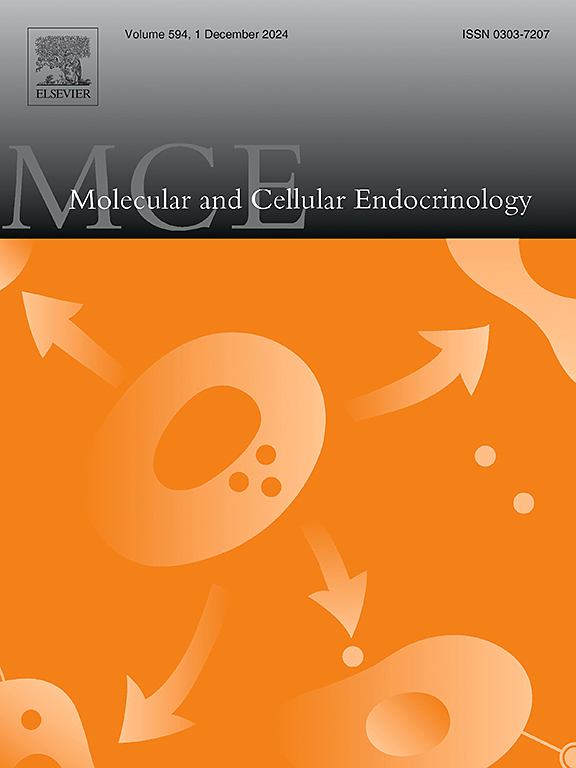From Gut to Brain: The roles of intestinal microbiota, immune system, and hormones in intestinal physiology and gut–brain–axis
IF 3.6
3区 医学
Q2 CELL BIOLOGY
引用次数: 0
Abstract
The intestine plays numerous roles in the normal physiology of our body. Gut-brain axis (GBA) is a complex communication network linking the gastrointestinal (GI) tract and central nervous system (CNS). This bidirectional system integrates endocrine, neural, and immune signals, impacting host metabolism and cognition. The gut microbiota, a critical component of the GBA, significantly impacts gut hormones, neurotransmission, neural development, and other components of gut-brain-axis. The microbiota-gut-brain axis facilitates communication via metabolites such as short chain fatty acids (SCFAs), and neurotransmitters such as dopamine, γ-amino butyric acid (GABA) and serotonin. The microbiota influences gut peptide production, including ghrelin, glucagon like pepetide-1 (GLP-1), serotonin, and cholecystokinin (CCK), thereby modulating nutrient absorption and immune responses. Gut hormones such as ghrelin, CCK, GLP-1, gastric inhibitory peptide (GIP), serotonin (5-HT), neurotensin, peptide YY (PYY) and melatonin play key roles in the GBA. These hormones play several roles including modulation of appetite and satiety, metabolism of nutrients such as lipid and glucose, insulin and glucagon secretion, and influence on gut inflammation, mood, learning and cognition. The interaction between gut microbiota and these hormones underscores their role in maintaining gut-brain homeostasis. Dysbiosis, or microbial imbalance, is linked to altered stress responses, anxiety, and depressive behaviors, highlighting the therapeutic potential of microbiota modulation. Despite the significant roles of gut hormones and microbiota in the GBA, literature on their cellular and molecular mechanisms is limited, and often based on animal models. This review synthesizes current understanding of hormones secreted by the intestine, their physiological effects and the cellular and molecular mechanisms of action underlying these effects, with a focus on their roles in the GBA. By elucidating these complex relationships, the review aims to advance research and clinical applications, offering insights into gastrointestinal and systemic health.
从肠道到大脑:肠道微生物群、免疫系统和激素在肠道生理和肠-脑轴中的作用。
肠道在我们身体的正常生理中起着许多作用。肠脑轴(GBA)是连接胃肠道和中枢神经系统的复杂通讯网络。这个双向系统整合了内分泌、神经和免疫信号,影响宿主的代谢和认知。肠道微生物群是大湾区的重要组成部分,对肠道激素、神经传递、神经发育和肠-脑轴的其他组成部分有显著影响。微生物-肠-脑轴通过代谢物如短链脂肪酸(SCFAs)和神经递质如多巴胺、γ-氨基丁酸(GABA)和血清素促进交流。微生物群影响肠道肽的产生,包括胃饥饿素、胰高血糖素样肽-1 (GLP-1)、血清素和胆囊收缩素(CCK),从而调节营养吸收和免疫反应。胃饥饿素、CCK、GLP-1、胃抑制肽(GIP)、血清素(5-HT)、神经紧张素、多肽YY (PYY)和褪黑激素等肠道激素在GBA中发挥关键作用。这些激素起着多种作用,包括调节食欲和饱腹感、脂质和葡萄糖等营养物质的代谢、胰岛素和胰高血糖素的分泌以及对肠道炎症、情绪、学习和认知的影响。肠道微生物群和这些激素之间的相互作用强调了它们在维持肠-脑稳态中的作用。生态失调或微生物失衡与应激反应、焦虑和抑郁行为的改变有关,这突出了微生物群调节的治疗潜力。尽管肠道激素和微生物群在GBA中发挥着重要作用,但关于其细胞和分子机制的文献有限,而且通常基于动物模型。本文综述了目前对肠道分泌的激素、其生理作用以及这些作用背后的细胞和分子机制的了解,重点介绍了它们在GBA中的作用。通过阐明这些复杂的关系,本综述旨在推进研究和临床应用,为胃肠道和全身健康提供见解。
本文章由计算机程序翻译,如有差异,请以英文原文为准。
求助全文
约1分钟内获得全文
求助全文
来源期刊

Molecular and Cellular Endocrinology
医学-内分泌学与代谢
CiteScore
9.00
自引率
2.40%
发文量
174
审稿时长
42 days
期刊介绍:
Molecular and Cellular Endocrinology was established in 1974 to meet the demand for integrated publication on all aspects related to the genetic and biochemical effects, synthesis and secretions of extracellular signals (hormones, neurotransmitters, etc.) and to the understanding of cellular regulatory mechanisms involved in hormonal control.
 求助内容:
求助内容: 应助结果提醒方式:
应助结果提醒方式:


